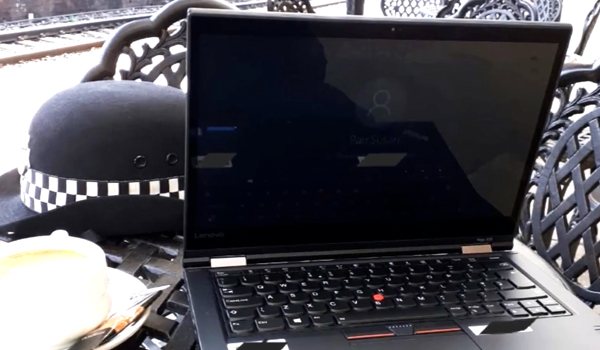Wiring Coppers
Hand-held data terminals for beat officers are now moving out of their trial phases and into full deployment. New technology is allowing many forces to increase their officers visibility and improve effectiveness in their local communities.

Hand-held data terminals for beat officers are now moving out of their trial phases and into full deployment. New technology is allowing many forces to increase their officers visibility and improve effectiveness in their local communities.
In August 2001, the Home Office commissioned a national study entitled Diary of a Police Officer. The aim of the research was to clearly identify how officers time was spent, and how they could perform their duties more efficiently. The study revealed that on average, officers were spending almost 43% of their time in police stations and not in the communities they served. One of the recommendations in the report was that new technology should be used to allow officers to carry out more of their duties remotely, including being able to access the Police National Computer (PNC). Today, officers from a number of forces are actively using hand-held devices to assist them in their daily duties.
Pocket policing
At first glance the pocket organiser seems to offer little that any officer in the field could make use of, but nothing could be further from the truth. Personal Digital Assistants (PDAs) today have storage, processing and connectivity that allow them to perform sophisticated tasks many of which can be adapted for police use. Officers are being equipped with PDA-like devices that can use ANPR systems, view warrants as the courts issue them, and even submit crime reports electronically. Officers are even receiving their duty rosters via email, further reducing the amount of time they have to spend away from their beats.
Across the UK forces are testing PDAs such as the Xda II that is marketed by 02 as a business device for mobile email and data management. A close cousin of the Xda is the M1000 from Orange that is also now being field tested. Mobile email has also been transformed thanks to the BlackBerry device that hundreds of thousands of people use each day. But even this piece of technology is being put to good use in West Yorkshire.
Traditional mobile phone manufactures are also looking closely at developing specialised hand-held devices that can be used in a policing environment. Motorola is one of the first to offer a TETRA compatible PDA. The new device has been designed to be rugged and offer an always on, secure and reliable two-way communication. The pocket-sized device measures just 145mm x 83mm x 35-50mm and weighs less than 500 grams. With its large 3.5 TFT screen it can be adapted for any specific situation. Nick Carter, Product Manager, Motorola TETRA subscribers, said: Motorola developed this PDA to reflect the growing needs of customers who want to deliver relevant applications directly to mobile officers. With the launch of this product we are demonstrating TETRA as the appropriate, reliable and secure bearer for public safety users of data.
HeliMedia have also announced their PSS (Patrol Support System). Unlike other systems that use existing hardware platforms, the PSS is a custom PDA running the Windows operating system. The device is mounted in a shock-resistant, water-proof, protective shell and includes a biometric fingerprint scanner, smart card reader, micro-camera with GPS and GSM/GPRS modem. Simon Hall, MD of HeliMedia said: We are not selling just a PDA. We are selling a complete end-to-end solution which includes back office hardware and software, all of which is designed to improve police responsiveness and productivity. The PSS system is designed and built by Italdata (a division of Elsag Spa) in Italy. HeliMedia is the UK distributor for the product and also offers service support together with the design of custom applications for UK customers such as issuing fixed penalty notices.
As the needs of officers on the beat become better understood, specialised hand-held devices will appear in larger numbers. At the moment existing PDA hardware platforms will maintain their dominance of the market as they can be set up and implemented very quickly. They offer forces a secure data gathering and analysis capability practically



